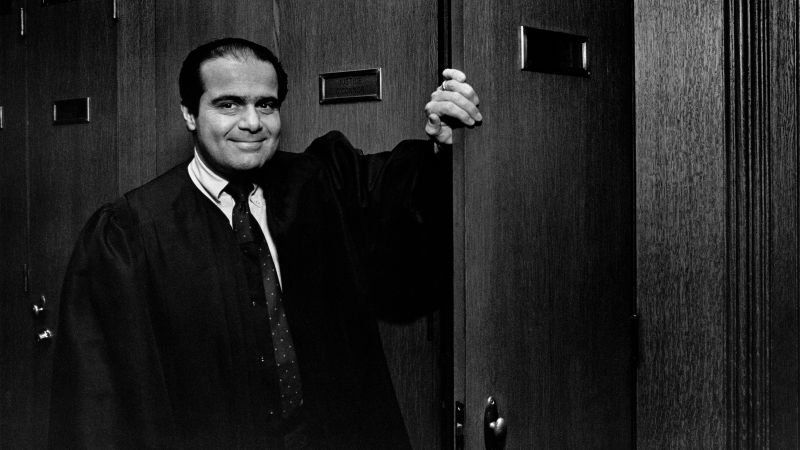
It’s still Antonin Scalia’s Supreme Court
CNN
Justice Antonin Scalia, a great dissenter, once remarked, “My most important function on the Supreme Court is to tell the majority to take a walk.”
Justice Antonin Scalia, a great dissenter, once remarked, “My most important function on the Supreme Court is to tell the majority to take a walk.” Today, many of Scalia’s former law clerks are conspicuously on the frontlines at the Supreme Court, where they have gone from junior partners-in-dissent to the masters of the right-wing legal agenda. In the 1990s, after experiencing a string of losses in disputes over societal dilemmas, Scalia wrote of the majority. “Day by day, case by case, it is busy designing a Constitution for a country I do not recognize.” Today, liberals might adopt that mantra. Recent rulings in cases engineered by former clerks to Scalia and other conservative justices include abolishing a constitutional right to abortion, bolstering Second Amendment gun rights and ending campus affirmative action. Those groundbreaking decisions would have won the vote of Scalia, a right-wing icon who died in 2016. His writings, once regarded as extreme, have become conventional at the high court, in large part because of former law clerks who have pushed his agenda as advocates or as judges themselves. “The justices’ ideas are living on through their former clerks,” Georgetown University constitutional law professor Brad Snyder. “This is a way that Scalia – long after he stopped writing – is still having a profound influence on American law and politics.”

A PhD student was snatched by masked officers in broad daylight. Then she was flown 1,500 miles away
Tufts University PhD student Rumeysa Ozturk was walking alone Tuesday night to meet friends at a dinner where they would break their 13-hour fast when six plainclothes officers suddenly encircled her on the street near her apartment in Somerville, Massachusetts, surveillance video shows.

A federal appeals court on Friday let President Donald Trump remove for now the chair of a critical “merit board” that reviews federal firings, and a member of the National Labor Relations Board, handing him a major win in his efforts to control independent federal agencies and potentially hobbling both agencies by depriving them of a quorum.





















 Run 3 Space | Play Space Running Game
Run 3 Space | Play Space Running Game Traffic Jam 3D | Online Racing Game
Traffic Jam 3D | Online Racing Game Duck Hunt | Play Old Classic Game
Duck Hunt | Play Old Classic Game









